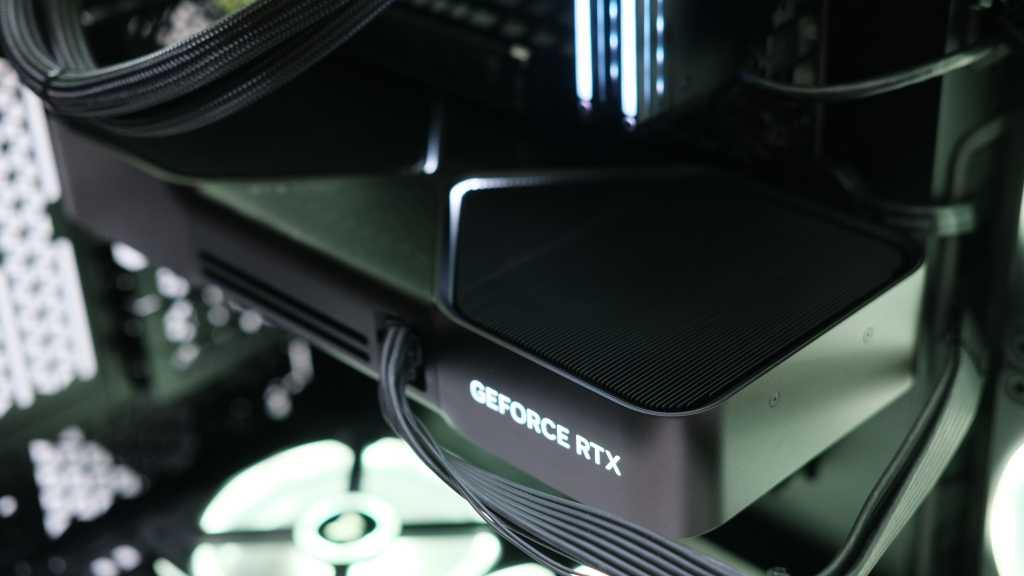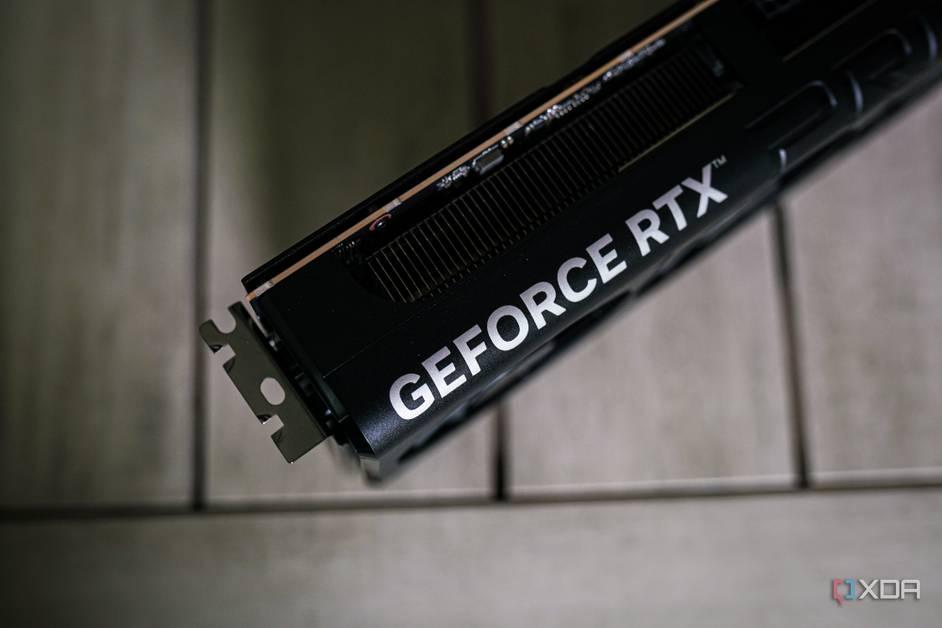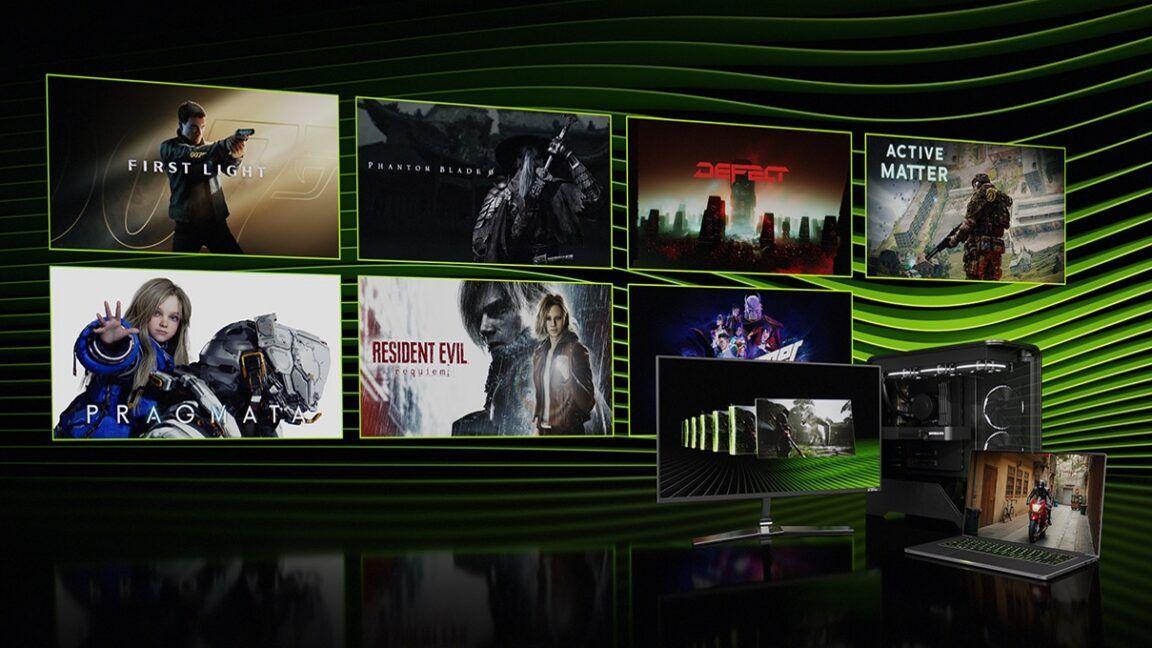GPU Market Shifts: Cloud Gaming and AI Upscaling Challenge Traditional Upgrade Cycle
3 Sources
3 Sources
[1]
Obnoxious GPU prices are pushing PC gamers to the cloud, study claims
Then again, maybe by that time they won't feel the need to upgrade anymore. Liquid Web's study also shed insight on gamers switching to cloud gaming, where upgrades aren't dependent on hardware availability or retail pricing. And there were an impressive number of respondents who were keen on the idea. Cloud gaming has come a long way over the past decade, and today it's a relatively solid alternative to native play. Geforce Now, Xbox Game Pass, PlayStation Plus -- they all offer relatively affordable options for playing large libraries of PC and console games without needing to own the proper hardware... or, in some cases, even the games. As of this writing, cloud gaming is far from replacing local gaming. There are a number of factors as to why that is, but for the gamers in this study, it's mainly due to latency problems. 62% of respondents (mostly Millenial and Gen Z) said they would switch to cloud gaming full-time instead of playing on their own hardware if latency were "eliminated." Unfortunately, that's just not going to happen. While modern hardware and networking is fast, there's just no beating the physical immediacy of local rendering on your own machine. However, when the question was asked more broadly of respondents, a sizeable number (42%) said they'd skip upgrading their graphics cards if "their needs were met" with either cloud gaming or AI upscaling. That's a much more achievable goal for cloud providers who want to deliver a premium remote gaming experience. Around 20% of Millennial and Gen Z gamers believe that high-end GPUs will become less essential in the next three years because of cloud gaming and the growing improvements to AI upscaling like DLSS and FSR. Meanwhile, nearly 60% who are still holding out for a GPU upgrade to improve their gaming experience. I'm not entirely sold on the idea of AI upscaling being everything, but frame generation has made some impressive leaps lately. If Nvidia keeps its focus on AI and can't figure out how to keep its GPUs in better stock, we may all be relying on more cloud and AI features before long.
[2]
43% of games skipped GPU upgrade to pay rent instead | Liquid Web
About 43% of gamers skipped a graphics processing unit (GPU) upgrade just to pay rent, according to a new report by Liquid Web. Based on a survey of 1,000 PC gamers, Liquid Web came up with a variety of conclusions about what affects the buying decisions of gamers. And clearly they're pretty price sensitive now. Liquid Web surveyed the PC gamers to uncover what drives today's graphics card decisions. The company noted that cloud gaming is a way for players to deal with the high costs of upgrading to a new GPU every few years. The survey found 62% of gamers would go all-in on cloud gaming if latency vanished. This represents a sober recalibration of value, performance, and permanence in the gaming world, Liquid Web said. Keep in mind that Liquid Web is a provider of premium hosting and cloud infrastructure solutions for businesses, developers, and digital creators. The study explores how price, performance, and platform shifts like AI and cloud computing are affecting loyalty, value perception, and the future role of high-end GPUs. AI upscaling is one such shift. This machine learning technology enhances lower-resolution frames by predicting and generating higher-resolution detail in real time. Alongside cloud gaming, it's changing how gamers evaluate upgrade needs. From budgeting limits to brand trust, our findings offer actionable insights into the priorities and pain points of modern PC gamers. About 36% of players already use services like GeForce Now or Xbox xCloud. One in five believe that high-end GPUs will be obsolete within three years. Death of the upgrade cycle? About 57% of players say they have been blocked from GPU purchases due to scalping or price hikes. And 43% have postponed or canceled upgrades due to rent or bills. Only 25% of gamers are willing to spend more than $500 on a GPU. Influencers are the new benchmarks, Liquid Web said. About 35% say influencers or reviews swayed them away from specific GPU brands. And 36% have switched GPU brands during an upgrade, while 23% say business controversies made them walk away from certain manufacturers. Liquid Web said financial pivots and tech pivots create a lot of tension. The upgrade cycle is broken, as rent payments, cloud gaming and AI are making GPUs less relevant for Gen Z. There's also the onset of graphics-light gaming platforms like Roblox, Minecraft and Fortnite. Those games have hundreds of millions of players, but they're not the most demanding when it comes to graphics realism. Roughly one in three gamers said they ditched a GPU brand because of influencers. This is not an easy thing to do, considering there are only three major GPU brands: Nvidia, AMD and Intel. Influence can beat specs when it comes to trust from gamers. Methodology Liquid Web surveyed 1,000 U.S.-based PC gamers in May 2025 to understand their GPU habits, upgrade barriers, and openness to cloud-based alternatives. The average age of gamers is 34, with 51% male, 46% female and 3% non-binary or other. About 4% of those surveyed were boomers, 18% were Gen X, 56% were Millennials and 22% were Gen Z. The coverage included all 50 U.S. states and top 100 metro areas. The survey included attitudinal questions, cloud usage patterns, and brand sentiment ratings. Analysis was supported by Google Trends comparisons of 318 GPU-related search terms across U.S. regions and major cities. Respondents were screened for active gaming engagement and recent GPU consideration or ownership. Other findings Nearly 3 in 4 gamers (73%) would choose Nvidia if all GPU brands performed equally. Over one in four gamers (25%) say $500 is their maximum budget for a GPU today. About 42% would skip future GPU upgrades entirely if AI upscaling or cloud services met their performance needs. Liquid Web said performance, price, and brand loyalty drive decisions. Gamers aren't just buying GPUs based on brand loyalty. They're also weighing performance, price, and trust. Among respondents, 36% had switched brands during a GPU upgrade, with 78% citing performance and 69% citing price as the top reasons. A series of bar charts shows survey results on GPU preferences, factors in choosing the best GPUs, trusted sources, and upgrade frequency among PC gamers. Most preferred brand is Nvidia, most important factor is performance, most trusted resource is Reddit/online forums, and a vast majority of gamers keep a GPU 3-5 years before upgrading. Nvidia remained the brand of choice for the majority, with 73% of gamers selecting it as their preferred GPU if all brands performed equally. This preference was especially strong among power users: 76% of ultrawide monitor users and 66% of 4K gamers relied on Nvidia. However, sentiment isn't set in stone. Around a quarter (23%) said recent controversies or business decisions made them less likely to support a brand. Influencers also played a role, with 35% of gamers saying reviews or tech personalities have swayed them away from certain manufacturers. Nearly one in 10 gamers (8%) reported regretting a GPU purchase. These feelings were most often due to issues like: Driver problems (especially for AMD users); overheating or loud cooling solutions; underwhelming performance for the price paid; incompatibility with VR or specific games; short-lived performance gains. "Gamers are pragmatic: value, reliability, and innovation matter more than brand loyalty. Brands that embrace these shifts will stand out in an increasingly discerning market," said Brooke Oates, product manager at Liquid Web, in a statement. As GPU prices continue to rise, budget constraints are pushing gamers toward secondhand markets and upgrade delays. Still, a GPU remains the most desirable upgrade for some. Nearly one in four (23%) said it would be their top pick if they could invest in just one component right now. Survey data statistics show the long-term trust in GPU brands (Nvidia comes in first), budget ranges (varies, with 27% of respondents choosing $500-699), and best value-for-money GPU models (varies between Nvidia models, with Nvidia RTX 4070 Ti coming in first). Buying behavior reflects gamers' tight budgets. Nearly half (45%) have opted for used or older models, and 22% said they use drop trackers or alert services to monitor price changes. Even for gamers ready to upgrade, 39% plan to wait one to two years, while another 37% said they'd only replace it if their current GPU fails. One in 7 gamers reported that GPU shortages have impacted their gaming or productivity in the past year. Gamers are divided on whether new features are worth it. About half believe GPUs have hit diminishing returns, while half do not. Topping the list of overrated features were 8K gaming (47%), ray tracing (17%), and frame generation (11%). Cloud gaming is reshaping future demand GPU demand among gamers in the future may look very different as cloud services and AI technologies improve. Many PC gamers are already reconsidering the need for hardware upgrades. Survey results on gamers' attitudes toward cloud gaming, 42% would skip a GPU upgrade for cloud if it matched performance, and 62% would switch to cloud if latency was zero. Nvidia GeForce Now and Xbox Cloud Gaming are the most trusted cloud gaming services, with 20% believing cloud gaming will replace hardware GPUs in the future. More than two in five PC gamers (42%) said they would skip a future GPU upgrade entirely if AI upscaling or cloud services met their needs. Nearly two-thirds (62%), including 62% of millennial and 61% of Gen Z gamers, would switch to cloud gaming full-time if latency were eliminated. Younger gamers showed the strongest inclination. Among Gen Z and millennials, 21% believed high-end GPUs would become less essential in the next three years. Over a third of respondents (36%) reported already using cloud gaming like GeForce Now or xCloud occasionally. If these trends continue, cloud performance may become a decisive factor in the GPU market, altering not just how games are played but also whether expensive hardware remains relevant, Liquid Web said. Even for gamers ready to upgrade, 39% plan to wait 1-2 years, while another 37% said they'd only replace it if their current GPU fails. "With gamers increasingly open to cloud and AI-powered solutions, partnerships or innovation in these areas could position brands for the future," Oats said Economic constraints are pushing gamers to make more calculated choices. Tight budgets, secondhand markets, and skepticism toward features like 8K gaming signal a shift from prestige performance toward practical solutions. At the same time, emerging technologies like AI upscaling and cloud gaming services are reshaping expectations. As hardware and software continue to evolve, the companies that win will be those that deliver value-first innovation, solving real pain points around access, longevity, and performance without breaking the bank. "GPU and gaming providers must rethink and address their value propositions. Accessible pricing, trade-in programs, or cloud gaming integrations could build long-term loyalty," said Oates.
[3]
Gaming GPU Trends 2025: How Price and AI Upscaling Shape Buyer Decisions
In 2025, the way PC gamers pick their graphics cards is shifting. While brand names like NVIDIA still hold a lot of weight, performance and price are becoming bigger factors in decisions. A survey of 1,000 gamers reveals that many are balancing budgets, brand trust, and new tech like AI upscaling and cloud gaming when deciding whether to upgrade or stick with their current GPU. Price is a real hurdle for many gamers today. More than half said they've been blocked from buying a GPU because of rising costs or scalpers driving prices up. Plus, 43% have put off buying a new card due to other expenses like rent or bills. About one in four gamers say $500 is the most they're willing to spend on a graphics card right now. On the other hand, technology is also changing how people think about upgrades. Over 60% said they would switch to cloud gaming full-time if the lag could be fixed, and around 40% said they might skip future GPU upgrades if AI upscaling or cloud gaming can deliver the performance they need. When it comes to brand preference, NVIDIA is still the top pick for most gamers if all cards perform the same. This is especially true for those with high-end setups like ultrawide monitors and 4K gaming rigs. But brand loyalty isn't guaranteed. About a quarter of gamers said recent controversies or business choices made them less likely to support a certain brand. Also, influencers and tech reviewers play a big role -- about one-third of gamers said reviews have swayed them away from some manufacturers. Key findings Nearly 3 in 4 gamers (73%) would choose NVIDIA if all GPU brands performed equally. 57% of gamers have been blocked from buying a GPU due to price hikes or scalping, and 43% have delayed or canceled purchases due to other life expenses like rent and bills. Over 1 in 4 gamers (25%) say $500 is their maximum budget for a GPU today. Nearly 2 in 3 gamers (62%) would switch to cloud gaming full-time if latency were eliminated, and 42% would skip future GPU upgrades entirely if AI upscaling or cloud services met their performance needs. Performance and price are the biggest reasons people switch brands. Over a third of gamers reported switching GPU brands when upgrading, mainly because of better performance or more affordable options. Gamers usually keep their GPUs for three to five years, and they rely heavily on online communities like Reddit for trusted advice. Some gamers have regrets about past purchases, mainly due to driver issues (especially with AMD), noisy or overheating cooling solutions, underwhelming performance for the price, or compatibility problems with VR or certain games. Today's gamers are practical. They want value and reliability more than just a brand name. As AI upscaling and cloud gaming become more widespread, the traditional reasons for upgrading GPUs could change. Source: liquid web
Share
Share
Copy Link
A 2025 survey reveals changing trends in GPU preferences among PC gamers, with cloud gaming and AI upscaling technologies potentially disrupting the traditional upgrade cycle.
Shifting Landscape of GPU Preferences
A recent survey conducted by Liquid Web in May 2025 has unveiled significant changes in the graphics processing unit (GPU) market for PC gamers. The study, which involved 1,000 participants across all 50 U.S. states, reveals how factors such as price, performance, and emerging technologies are reshaping the gaming hardware landscape
1
.
Source: VentureBeat
Financial Constraints and GPU Upgrades
The survey highlights the growing impact of financial considerations on GPU purchasing decisions. A striking 43% of gamers reported postponing or canceling GPU upgrades due to pressing financial obligations such as rent or bills
2
. Moreover, 57% of respondents indicated that scalping and price hikes had prevented them from acquiring new GPUs2
.Budget Limitations and Brand Preferences
The study reveals a significant shift in budget allocations for GPU purchases. Only 25% of gamers expressed willingness to spend more than $500 on a GPU
1
. Despite these financial constraints, brand loyalty remains strong, with 73% of gamers indicating a preference for NVIDIA if all GPU brands performed equally3
.The Rise of Cloud Gaming and AI Upscaling
Cloud gaming emerges as a potential solution to the high costs associated with regular GPU upgrades. An impressive 62% of respondents stated they would switch entirely to cloud gaming if latency issues were resolved
1
. Currently, about 36% of players already utilize cloud gaming services like GeForce Now or Xbox xCloud1
.
Source: PCWorld
The Impact of AI Upscaling
AI upscaling technology is gaining traction as an alternative to traditional GPU upgrades. The survey found that 42% of gamers would consider skipping future GPU upgrades if AI upscaling or cloud services could meet their performance needs
2
. This trend is particularly notable among younger generations, with 20% of Millennial and Gen Z gamers believing that high-end GPUs will become less essential in the next three years due to cloud gaming and AI upscaling improvements3
.Related Stories
Influencer Impact and Brand Loyalty
The survey also highlights the growing influence of tech reviewers and online personalities on GPU purchasing decisions. Approximately 35% of gamers reported being swayed away from specific GPU brands by influencers or reviews
1
. Additionally, 23% of respondents indicated that recent controversies or business decisions had made them less likely to support certain brands2
.
Source: Guru3D
Future Outlook
As the gaming industry continues to evolve, the traditional GPU upgrade cycle faces significant challenges. The combination of financial constraints, advancements in cloud gaming and AI upscaling, and changing consumer preferences suggests a potential shift in how gamers approach hardware upgrades. While high-end GPUs remain crucial for many, the industry may need to adapt to these emerging trends to meet the diverse needs of the gaming community.
References
Summarized by
Navi
Related Stories
Nvidia delays next-gen graphics cards until 2028 as AI chips take priority over gaming GPUs
05 Feb 2026•Business and Economy

Nvidia Dominates GPU Market with 92% Share, Leaving AMD and Intel Far Behind
06 Jun 2025•Technology

NVIDIA Revolutionizes Cloud Gaming with GeForce NOW RTX 5080 Upgrade
19 Aug 2025•Technology

Recent Highlights
1
Pentagon threatens to cut Anthropic's $200M contract over AI safety restrictions in military ops
Policy and Regulation

2
ByteDance's Seedance 2.0 AI video generator triggers copyright infringement battle with Hollywood
Policy and Regulation

3
OpenAI closes in on $100 billion funding round with $850 billion valuation as spending plans shift
Business and Economy





